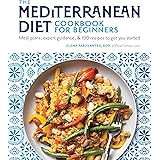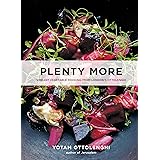The quest for optimal health often leads to exploring various dietary approaches. Modern lifestyles can present numerous health challenges. Many individuals seek ways to prevent chronic diseases. A powerful dietary pattern has emerged as a significant solution. This approach is supported by new medical data. It promises protection against mental illness and other ailments.
As discussed in the video above, the Mediterranean diet is a prime example. This eating style is much more than a temporary trend. It is a way of life. It reflects the traditional diets. These diets are found in countries bordering the Mediterranean Sea. Dr. Jennifer McKinnon from the Medical College of Wisconsin provided insights. She explains this diet is not restrictive. Instead, it promotes a balanced intake of specific foods.
Understanding the Mediterranean Diet’s Core Principles
The Mediterranean diet emphasizes whole, unprocessed foods. It focuses on plant-based eating. This nutritional plan builds a strong health foundation. It is recognized for its numerous benefits. The diet is rooted in centuries of tradition. It offers a sustainable path to wellness. Its protective effects are widely studied. They extend to both physical and mental well-being.
-
Prioritizing Plant-Based Foods and Whole Grains
At the base of the Mediterranean food pyramid are fruits and vegetables. These should be consumed in abundance. They provide essential vitamins and minerals. These foods are rich in antioxidants. Antioxidants combat cellular damage. Daily intake is highly encouraged. Fresh produce supports overall bodily functions.
Whole grains also form a crucial part. These are often dark brown in color. They are clearly labeled “whole grain.” Examples include oats, brown rice, and whole wheat bread. These grains offer complex carbohydrates. They provide sustained energy release. Their fiber content is significant. Fiber supports digestive health. It also helps manage blood sugar levels. Regular consumption is linked to improved cardiovascular health.
-
Emphasizing Healthy Fats and Legumes
Healthy fats are central to this diet. Extra virgin olive oil is a primary fat source. It is used for cooking and dressing. Olive oil contains monounsaturated fats. These fats are known to support heart health. They help reduce inflammation. Nuts and seeds are also important. They offer beneficial fats and protein. Almonds, walnuts, and chia seeds are common inclusions.
Legumes and beans are integral. Lentils, chickpeas, and kidney beans are consumed regularly. These foods are excellent protein sources. They are also packed with fiber. They contribute to satiety. Their inclusion reduces the need for animal proteins. Studies show regular legume intake can lower disease risk.
Strategic Protein Choices in the Mediterranean Lifestyle
Protein sources within the Mediterranean diet are carefully selected. The emphasis is on quality and frequency. Fish and poultry are preferred over red meat. Their preparation methods are also key. They contribute significantly to the diet’s health benefits. Understanding these choices is vital for adopting the diet effectively.
-
Focusing on Fish: Oily Varieties are Key
Fish is a cornerstone of the Mediterranean diet. It is recommended two to three times per week. Oily fish are especially valued. These include tuna, salmon, mackerel, and sardines. These varieties are rich in omega-3 fatty acids. Omega-3s are crucial for brain health. They also reduce inflammation. They support cardiovascular function. Research indicates a significant reduction in heart disease risk. This benefit is seen with regular oily fish consumption.
Preparation is simple and healthy. Fish is often baked, grilled, or broiled. Frying fish is typically avoided. This helps preserve the healthy fats. It prevents the addition of unhealthy oils. The diet moves away from traditional fried preparations. This ensures maximum nutritional value.
-
Poultry and Limited Red Meat Intake
Poultry, such as chicken and turkey, is also included. It serves as a lean protein source. Poultry is consumed in moderation. Its preparation mirrors that of fish. Grilling or baking is preferred. Skin is often removed to reduce fat content.
Red meat consumption is very limited. It is suggested only once per week. Serving size is carefully controlled. Dr. McKinnon highlighted this point. The portion should be about the size of your palm. This helps manage saturated fat intake. Excessive red meat consumption is linked to various health concerns. This includes certain types of cancer. It also impacts heart health. Therefore, smaller, infrequent portions are advised.
Beyond Food: Lifestyle Aspects of the Mediterranean Diet
The Mediterranean diet is more than just a list of foods. It encompasses a holistic approach to living. This broader perspective enhances its overall effectiveness. It contributes to long-term health and well-being. Incorporating these lifestyle elements strengthens the diet’s impact.
-
The Importance of Physical Activity
Regular physical activity is an integral component. People in Mediterranean cultures are often active. They walk more. They engage in daily chores. This consistent movement supports health. It complements the dietary choices. Exercise improves cardiovascular fitness. It helps manage weight. It also boosts mood. Integrating movement into daily routines is encouraged.
-
Mindful Eating and Social Connection
Eating is often a social event. Meals are savored. They are enjoyed with family and friends. This mindful approach to eating helps digestion. It reduces stress. It also fosters community bonds. This social aspect is considered vital. It contributes to mental health. It enhances overall life satisfaction. The Mediterranean diet promotes eating slowly. It encourages listening to the body’s hunger cues. This prevents overeating. It cultivates a healthier relationship with food. This powerful lifestyle choice protects against various ailments. It promotes longevity and vitality.











